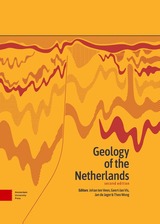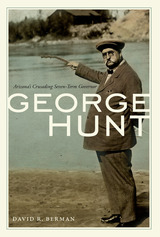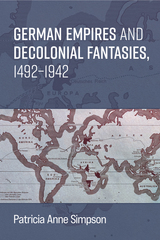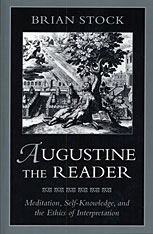
Augustine of Hippo, a central figure in the history of Western thought, is also the author of a theory of reading that has had a profound influence on Western letters from the ages of Petrarch, Montaigne, Luther, and Rousseau to those of Freud and our own time. Brian Stock provides the first full account of this theory within the evolution of Augustine’s early dialogues, his Confessions, and his systematic treatises.
Augustine was convinced that words and images play a mediating role in our perceptions of reality. In the union of philosophy, psychology, and literary insights that forms the basis of his theory of reading, the reader emerges as the dominant model of the reflective self. Meditative reading, indeed the meditative act that constitutes reading itself, becomes the portal to inner being. At the same time, Augustine argues that the self-knowledge reading brings is, of necessity, limited, since it is faith rather than interpretive reason that can translate reading into forms of understanding.
In making his theory of reading a central concern, Augustine rethinks ancient doctrines about images, memory, emotion, and cognition. In judging what readers gain and do not gain from the sensory and mental understanding of texts, he takes up questions that have reappeared in contemporary thinking. He prefigures, and in a way he teaches us to recognize, our own preoccupations with the phenomenology of reading, the hermeneutics of tradition, and the ethics of interpretation.
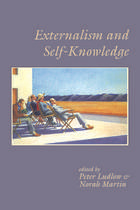
The selected works presented in this volume, some previously published, some new, are representative of this debate and open up new questions and issues for philosophical investigation, including the connection between externalism, self-knowledge, epistemic warrant, and memory.
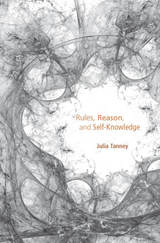
Julia Tanney offers a sustained criticism of today’s canon in philosophy of mind, which conceives the workings of the rational mind as the outcome of causal interactions between mental states that have their bases in the brain. With its roots in physicalism and functionalism, this widely accepted view provides the philosophical foundation for the cardinal tenet of the cognitive sciences: that cognition is a form of information-processing. Rules, Reason, and Self-Knowledge presents a challenge not only to the cognitivist approach that has dominated philosophy and the special sciences for the last fifty years but, more broadly, to metaphysical-empirical approaches to the study of the mind.
Responding to a tradition that owes much to the writings of Davidson, early Putnam, and Fodor, Tanney challenges this orthodoxy on its own terms. In untangling its internal inadequacies, starting with the paradoxes of irrationality, she arrives at a view these philosophers were keen to rebut—one with affinities to the work of Ryle and Wittgenstein and all but invisible to those working on the cutting edge of analytic philosophy and mind research today. This is the view that rational explanations are embedded in “thick” descriptions that are themselves sophistications upon ever ascending levels of discourse, or socio-linguistic practices.
Tanney argues that conceptual cartography rather than metaphysical-scientific explanation is the basic tool for understanding the nature of the mind. Rules, Reason, and Self-Knowledge clears the path for a return to the world-involving, circumstance-dependent, normative practices where the rational mind has its home.
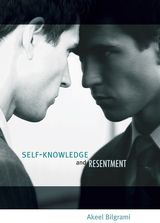
In Self-Knowledge and Resentment, Akeel Bilgrami argues that self-knowledge of our intentional states is special among all the knowledges we have because it is not an epistemological notion in the standard sense of that term, but instead is a fallout of the radically normative nature of thought and agency.
Four themes or questions are brought together into an integrated philosophical position: What makes self-knowledge different from other forms of knowledge? What makes for freedom and agency in a deterministic universe? What makes intentional states of a subject irreducible to its physical and functional states? And what makes values irreducible to the states of nature as the natural sciences study them? This integration of themes into a single and systematic picture of thought, value, agency, and self-knowledge is essential to the book's aspiration and argument. Once this integrated position is fully in place, the book closes with a postscript on how one might fruitfully view the kind of self-knowledge that is pursued in psychoanalysis.
READERS
Browse our collection.
PUBLISHERS
See BiblioVault's publisher services.
STUDENT SERVICES
Files for college accessibility offices.
UChicago Accessibility Resources
home | accessibility | search | about | contact us
BiblioVault ® 2001 - 2025
The University of Chicago Press



